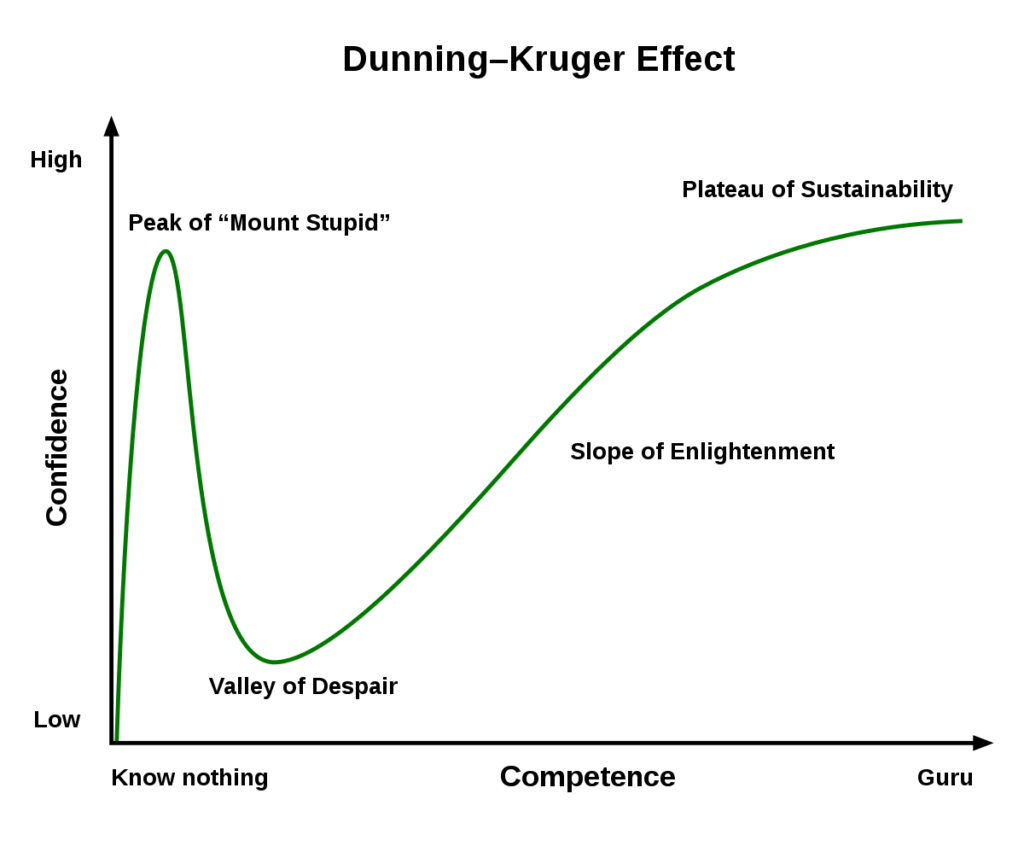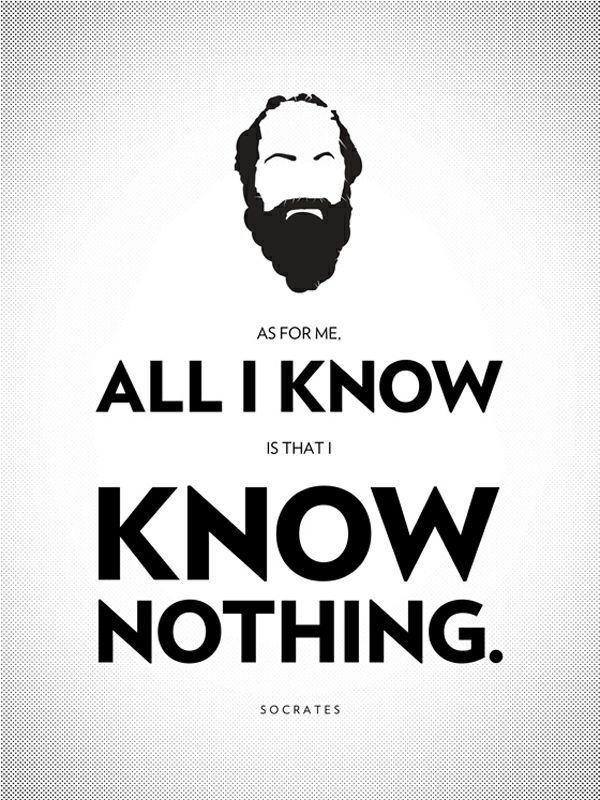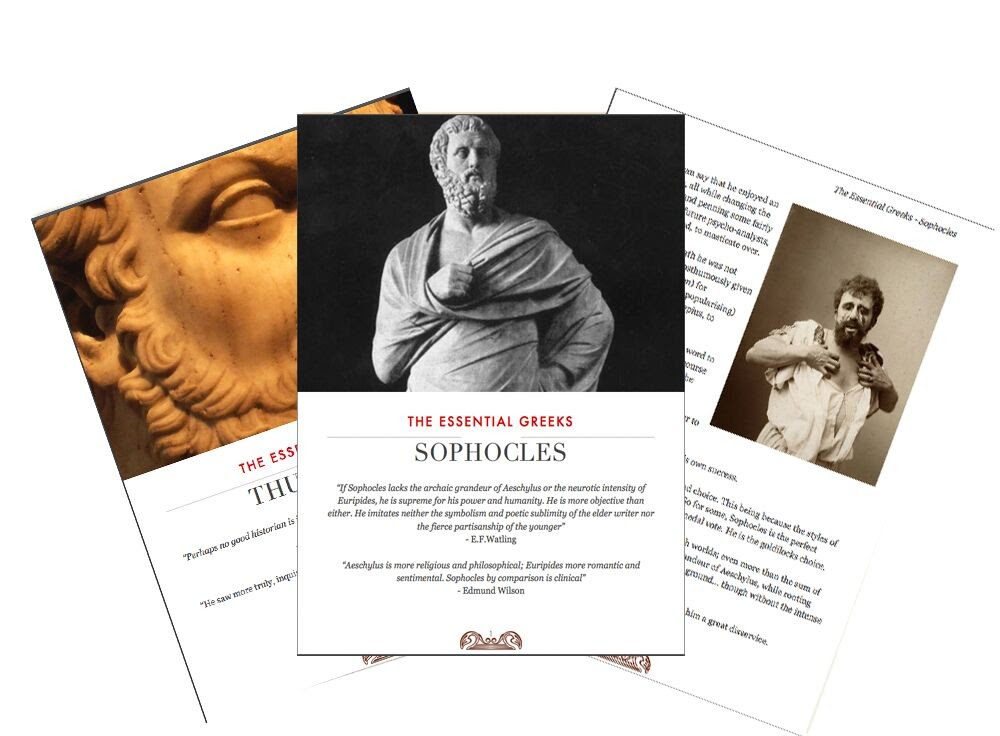It’s called the Imposter Syndrome and it’s usually touted about by life coaches to reassure the doubtful. For those who are prone to question their abilities, to feel as if they are actually an imposter rather than the expert they are portrayed as, this label can assuage their fears.
You are fully capable, they confirm, the fact that you don’t feel that way is the falsehood.
But is this true?
On the other end of the spectrum is the famous Dunning-Kruger effect.
This is a well established psychological effect that essentially explains how folks overestimate their abilities. In fact, the less one knows about something, the more confident they will be in expressing an opinion.
We all have enough anecdotal experience of this effect to know what I’m going on about… from talking heads to annoying dinner guests, we’ve all been on the receiving end of overly confident ignorance.
What we might not realise (or admit) is that we’ve all done it as well.

You may not have fallen victim to it in your field of expertise… but there is A topic in which you have at one point or another claimed more understanding than you in fact have.
This is where the boldness and brilliance of Socrates’ comments – that he can admit that he does not know that which he can not claim to know – rings relevant.
(And this is an important difference from the regular misquote that he simply does not know anything. Obviously Socrates knows a lot, he just doesn’t claim to know things which he doesn’t know.
(See Richard Dawkins speaking about Jordan Peterson as a perfect example here – at 4:20)
Okay great. What’s the question you may be asking? We should all practice a bit of humility… try to learn more about the fields in which we don’t know or keep quiet on those subjects. Simple.
Well, the waters get murky when you see some of the negative consequences of the Dunning-Kruger effect.
For instance, even though in a study the women and men performed equally in their scientific abilities, because the women felt less confident, they did not enter in the science fair.
Likewise, we regularly see society promoting, praising and rewarding confidence – even over-under deserved confidence. Who gets the raise? The person who asked for it, of course.
At this point, the wisdom of Virgil echoes in our ears and in the history books: Fortune favors the bold.
So where does that leave us? Should we know that we know nothing? Or should we quell those worries and march ahead?
As always, you can write me directly or comment below.
But before you go, a quick bit of housekeeping.
Former students LOVED the course, for instance Steven S. wrote to us saying:
“I enjoyed the course immensely and found it most intellectually thought-provoking and enlightening. Many thanks to you for offering such an educational and stimulating experience.”
While Bill V. said:
“Essential Greeks has been a very entertaining, edifying, and–as whenever one engages that culture–inspiring on-line course. Thanks for the enjoyable and motivating experience.”
Start 2022 with the Essential Greeks. Make sure to register before January 15th!












No comments yet. You should be kind and add one!
Our apologies, you must be logged in to post a comment.